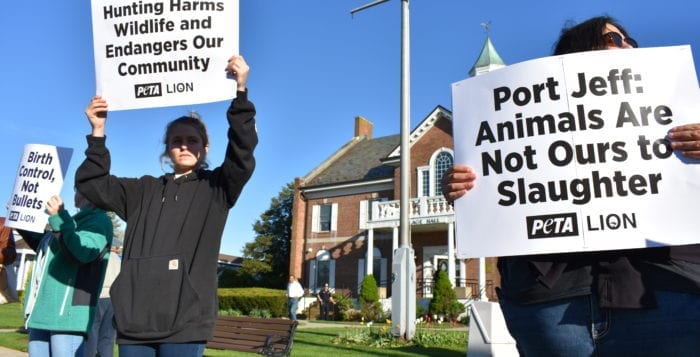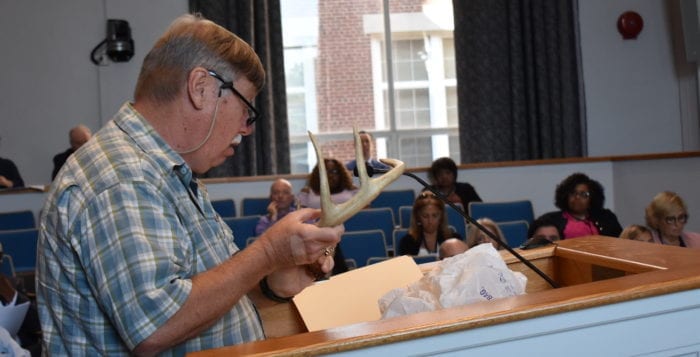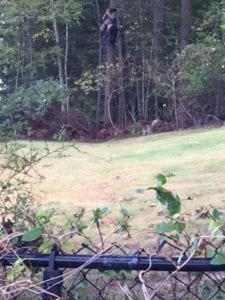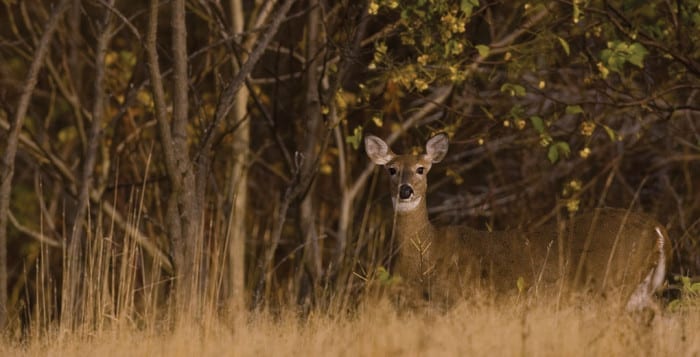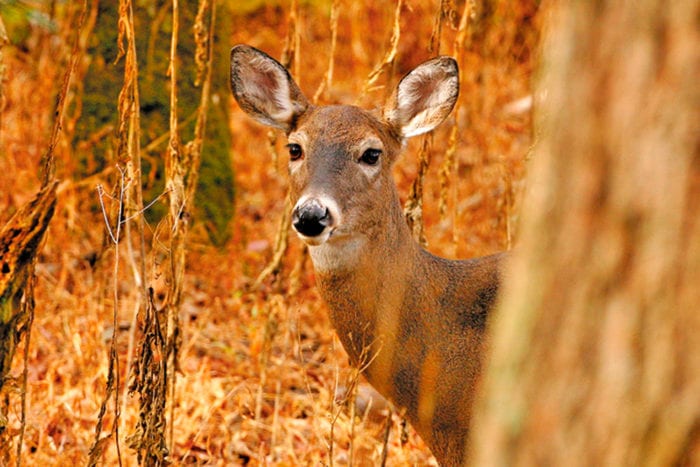A score of people from Port Jefferson and surrounding areas gathered in front of Village Hall May 8 to protest what they said is a potential mass slaughter of innocent deer.
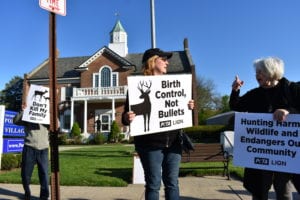
“Hunting tears families apart and leaves countless orphaned … they grieve for them, just like humans do,” said Gabby Luongo, a protest organizer and representative of animal rights group Long Island Orchestrating for Nature. “Trying to manage the deer through lethal means is also inefficient. When deer are killed, more deer will use those available resources, the temporary availability in the food supply will cause those does to breed at an accelerated rate.”
The protesters traveled from nearby areas like Shoreham, Selden and Fort Salonga as well as a few from the villages of Port Jeff and Belle Terre. They said they came in response to news the village has been making plans for some sort of deer management program, particularly some kind of controlled hunt or professional culling.
The protest signs read, “Don’t kill my family” and “Port Jeff: Animals are not ours to slaughter.” The signs also had the LION and People for the Ethical Treatment of Animals logos printed on them.
In April, the Village of Port Jefferson hosted a public forum with representatives from the New York Department of Environmental Conservation, along with other federal environmental agencies. Those representatives said deer have had a particularly harmful effect on the Long Island environment, especially in them eating vegetation and ground cover, including tree saplings that would replace the ever-shrinking forest growth of Long Island.
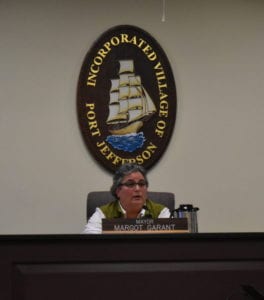
Village code still curtails hunting by restricting the use of any firearm or bow and arrow within village limits. However, Mayor Margot Garant said they have received a letter from the New York State Attorney General, Letitia James (D), stating the village does not have the legal capability to regulate hunting, as that is a state matter.
“The community has a lot to think about and address, the board of trustees has a decision to make, whether we change the code or keep the code in place and wait for that code to be challenged,” Garant said during the public portion of the meeting, attended by the protesters. “We are not here supporting the hunting of deer.”
The mayor said that no decisions have yet been made on the issue of deer population, and at the meeting left it open to any forms of suggestions, saying for the moment, the code restricting hunting remains on the books.
However, in conversation after the April deer forum, the mayor said if a person had the right permits and brought a hunter onto their property, and the hunter was staying a lawful distance from other residents property, the village could not and would not go after those residents who broke the code.
“I think we have to take a really hard look at what we’re doing, not just with deer, but all the other animals that pay the hard price for our greed and our non-consideration of them,” Shoreham resident Madeleine Gamache said.

Protesters at the meeting said instead of a hunt or cull, the village should instead look into nonlethal sterilization programs, such as that currently taking place in Head of the Harbor with the Avalon Park & Preserve. Scientists from Tufts University and The Humane Society of the United States have taken a $248,290 grant from the park to fund the six-year study.
“We would like to see some kind of birth control,” said Belle Terre resident Yvonne Kravitz. “We’re very much opposed to having these beautiful animals hunted and killed.”
Others called for the village to change the code to allow for higher fencing, as current fencing is restricted to no more than 6 feet.
Still, others were adamant the village needs to step up and perform a culling or controlled hunt of deer.
“I don’t know one person from where I live who doesn’t want you to go out and do a big cull,” said Port Jeff resident Molly Mason.
Garant said the village had a meeting with the Village of Belle Terre May 7, and the two villages together barely make up more than 4 square miles. A healthy deer population would be 15 deer per square mile but the local mayors have said the real number could be several hundred per square mile. Belle Terre has had 33 vehicle collisions with deer on Cliff Road alone, according to the Port Jeff mayor.
The Village of Belle Terre voted at the beginning of this year to allow hunting within the village. Since then Mayor Bob Sandak said hunters have killed approximately 100 deer so far.

